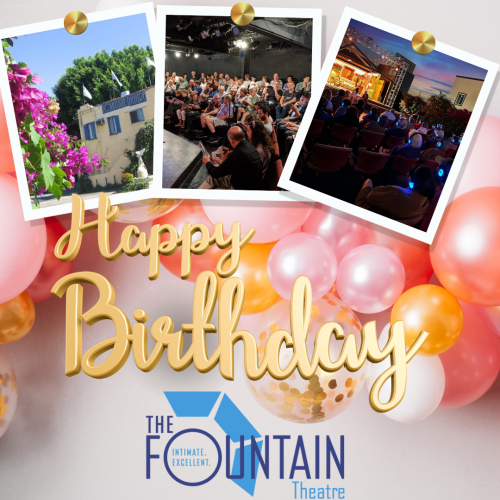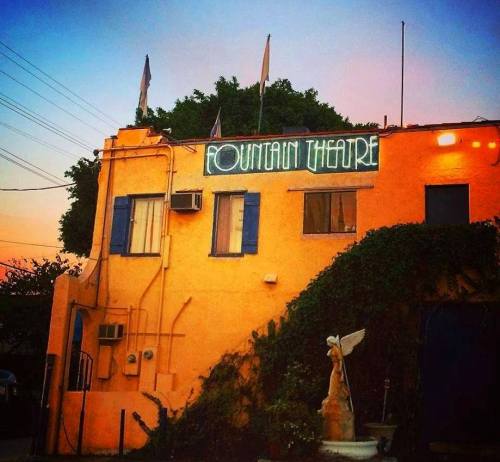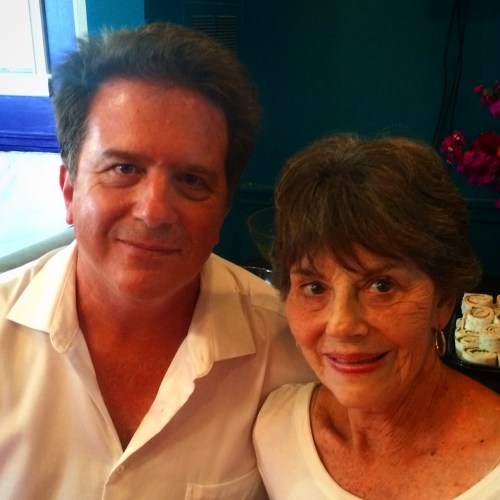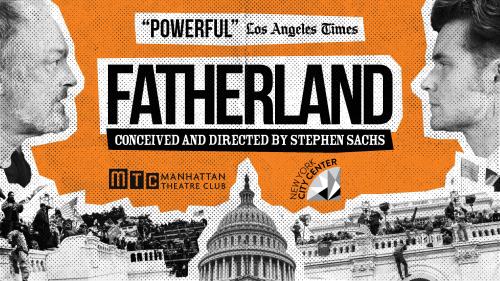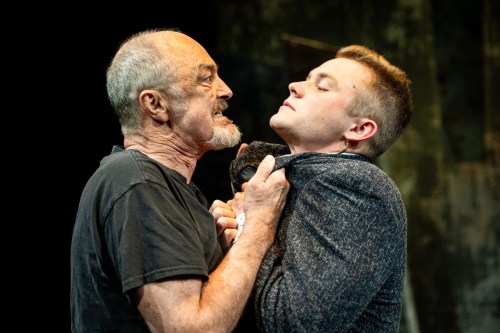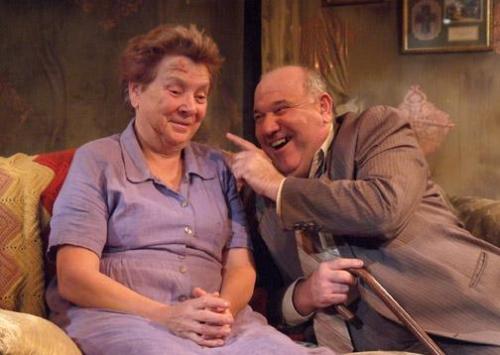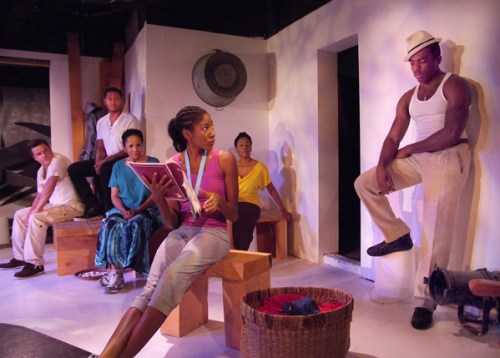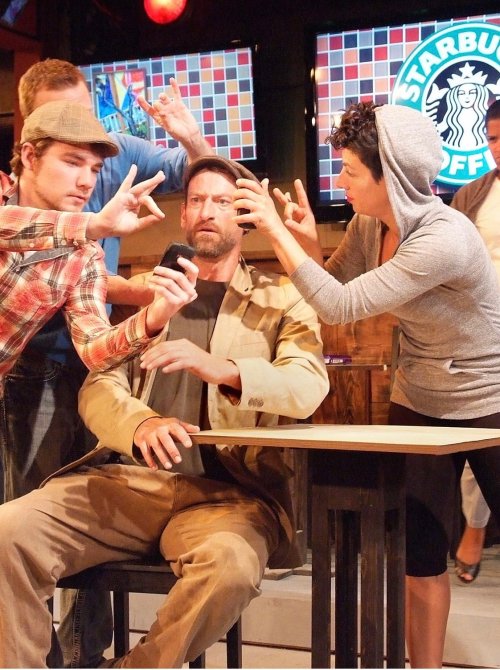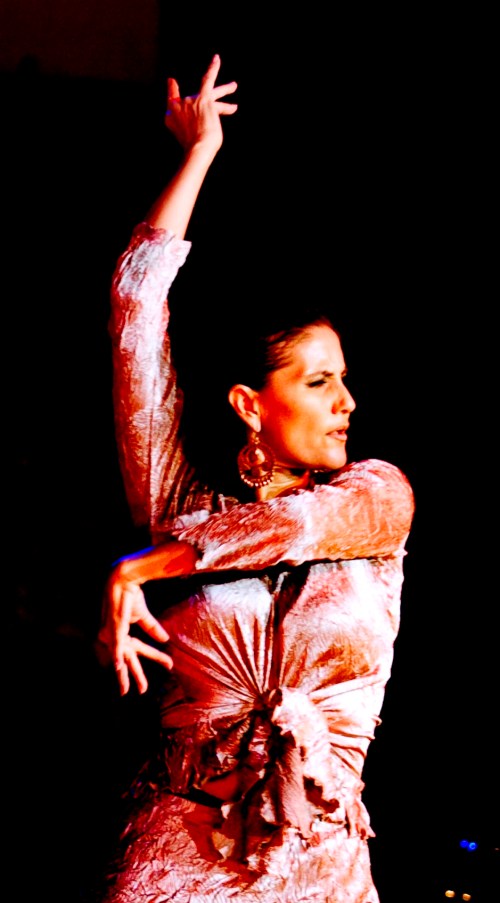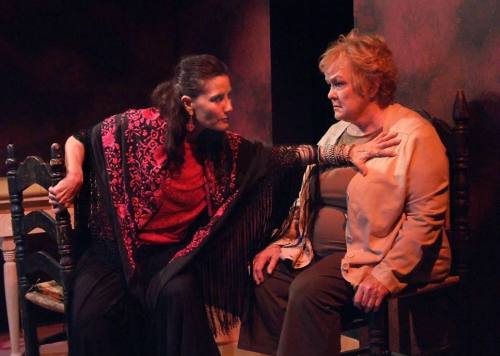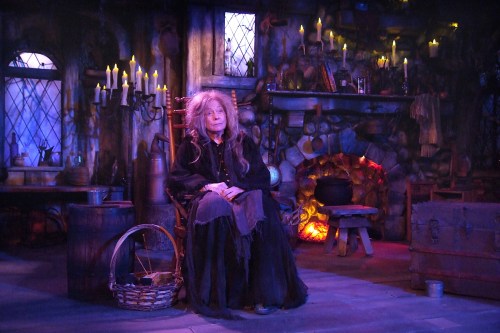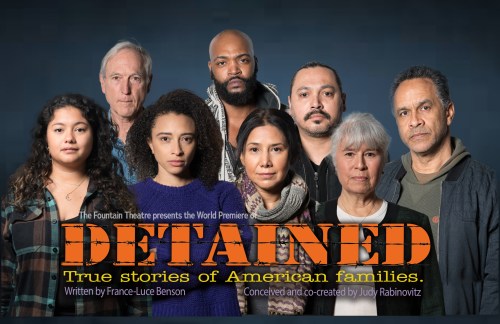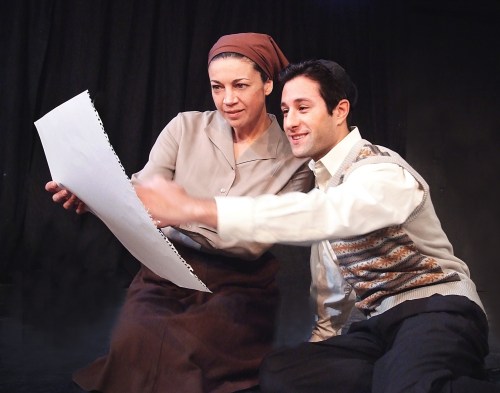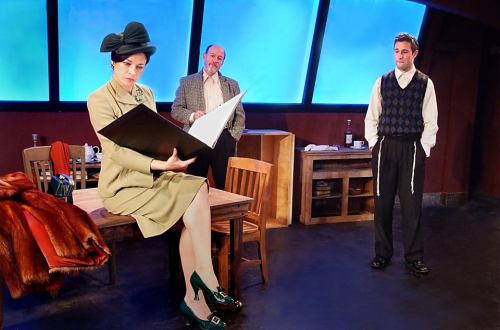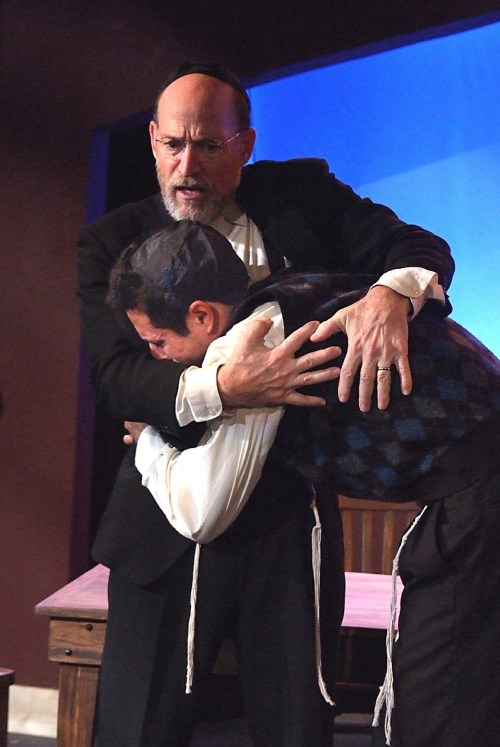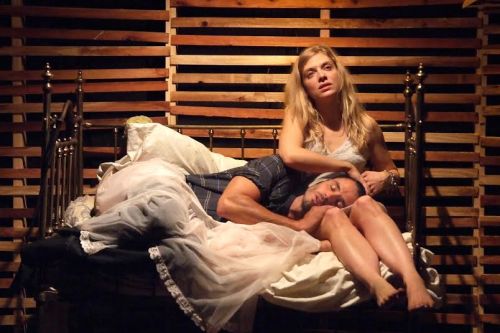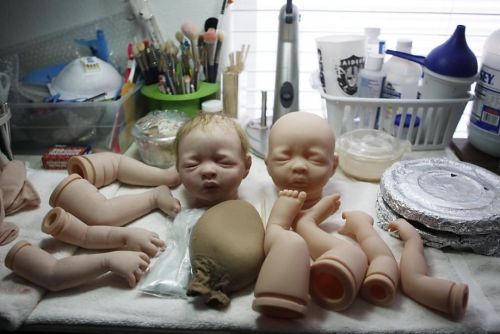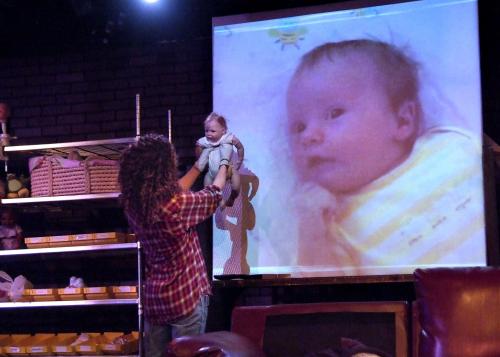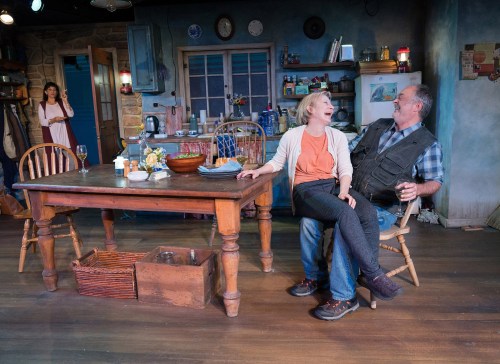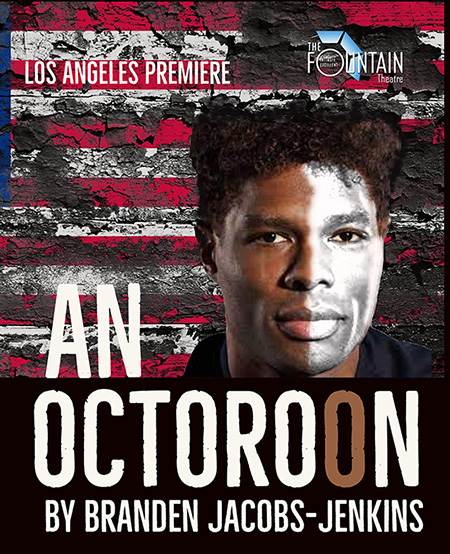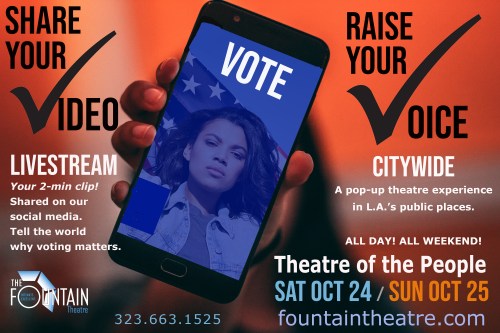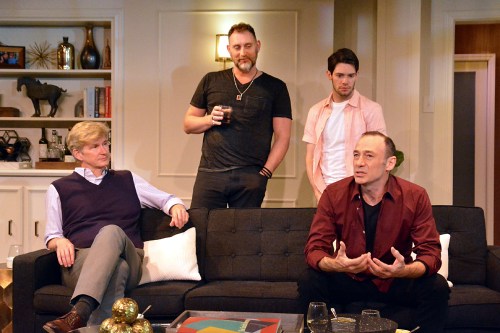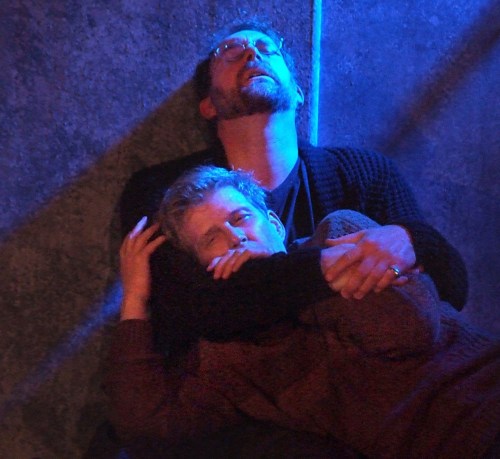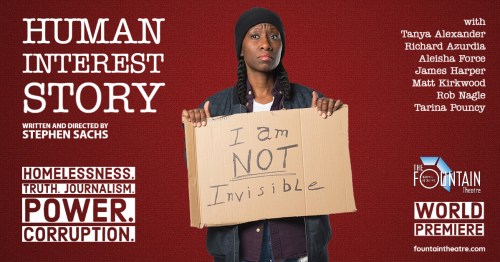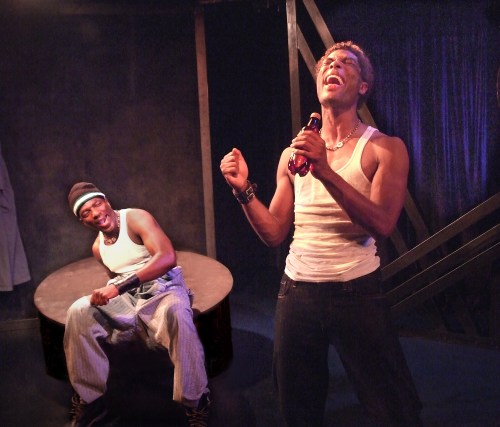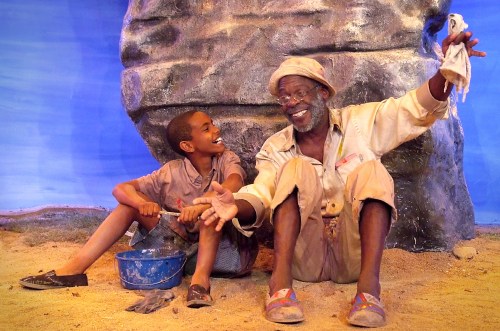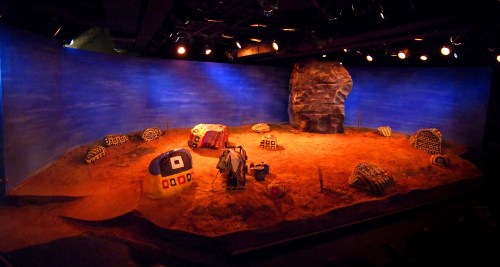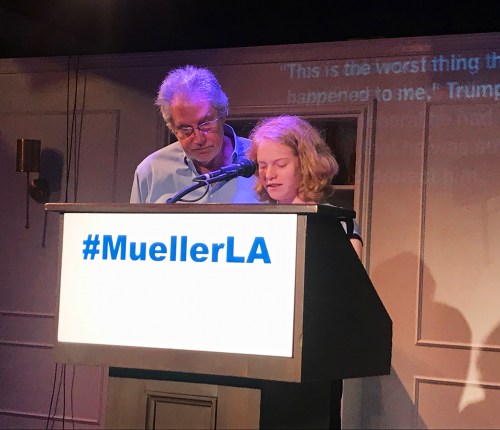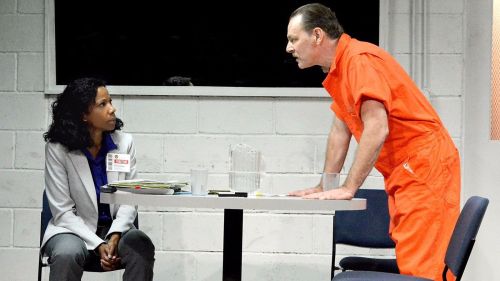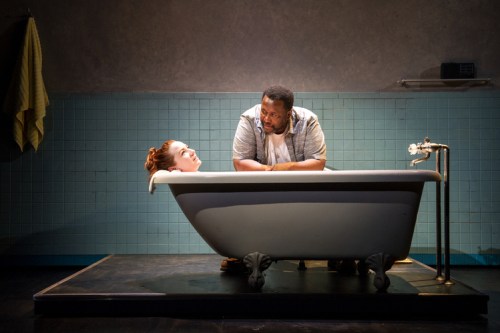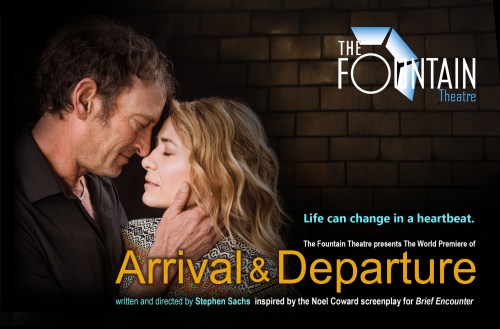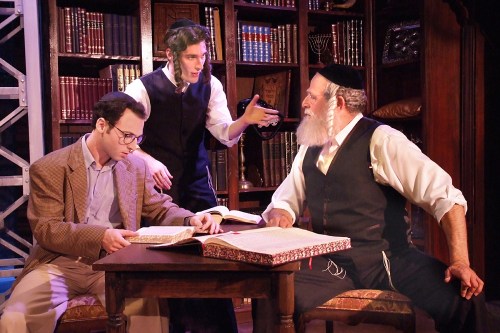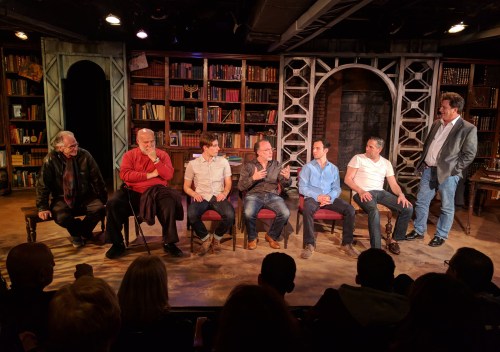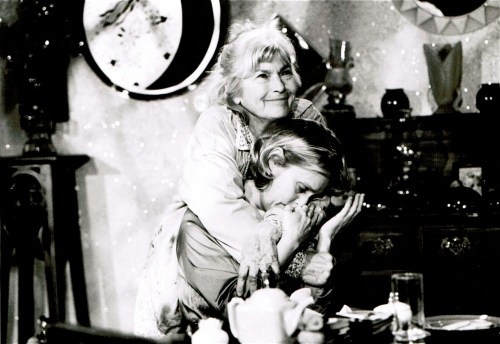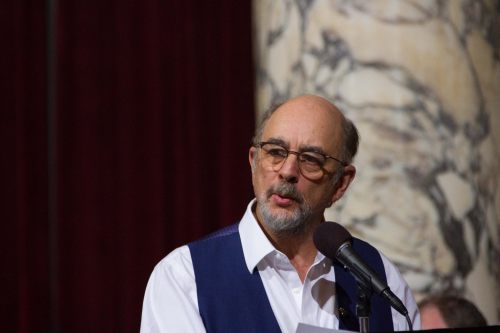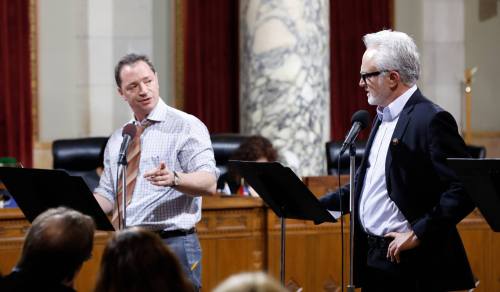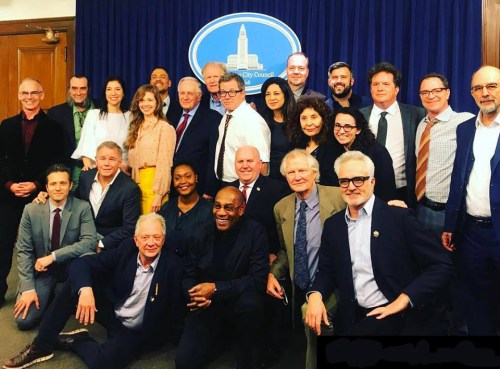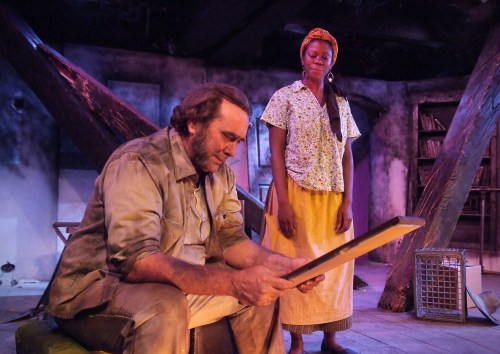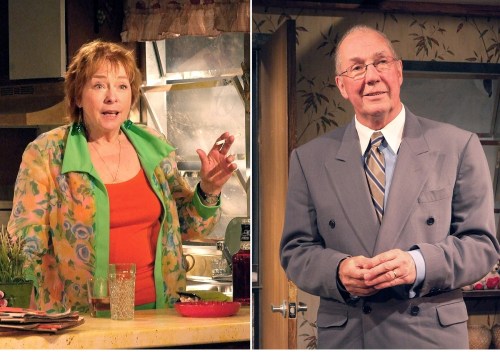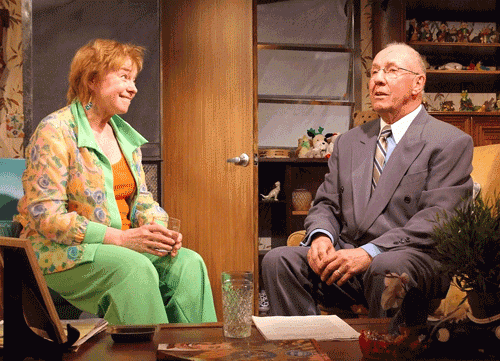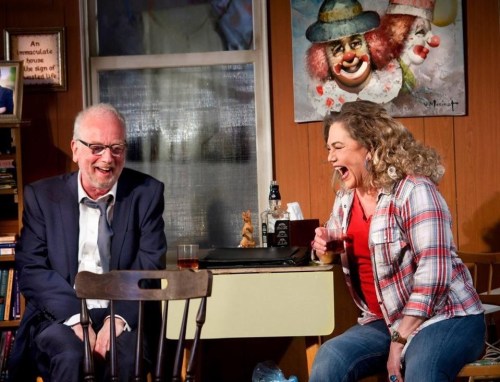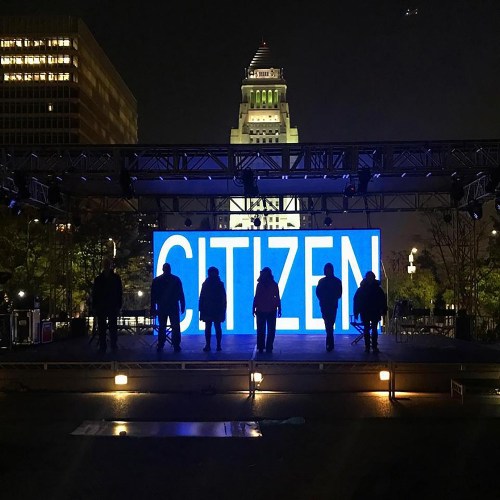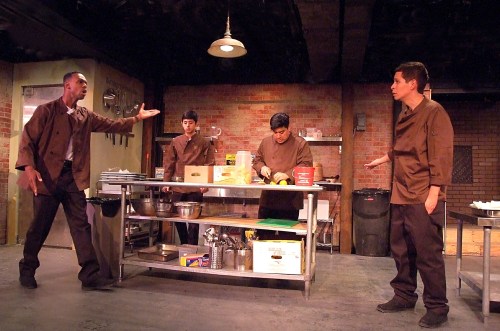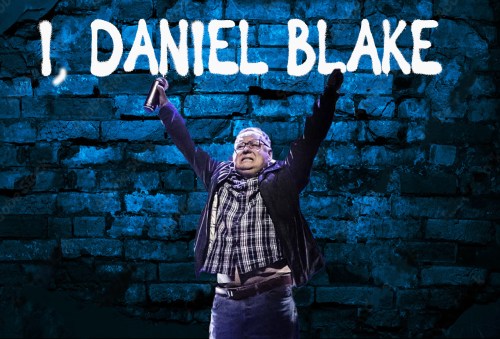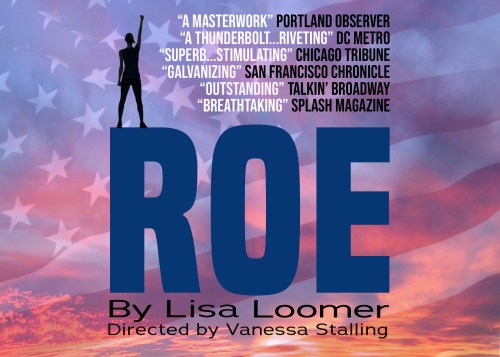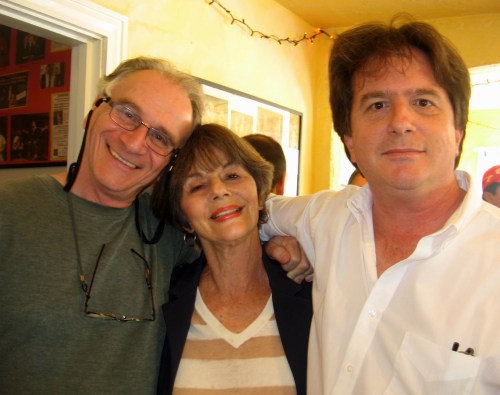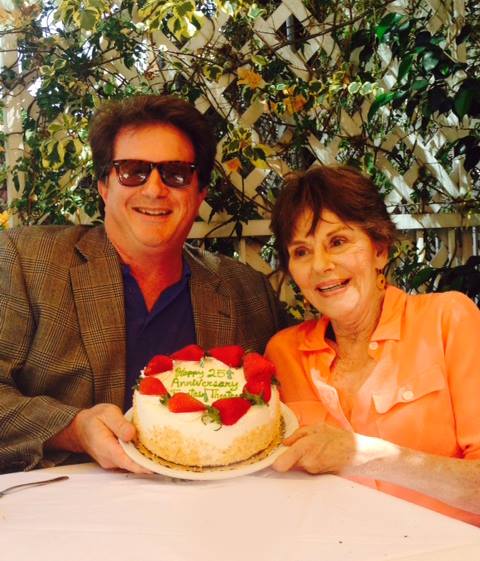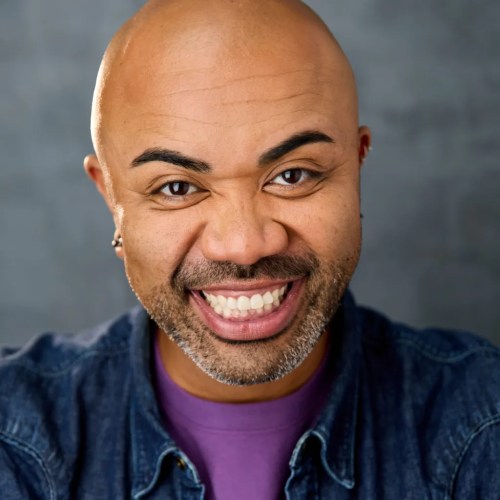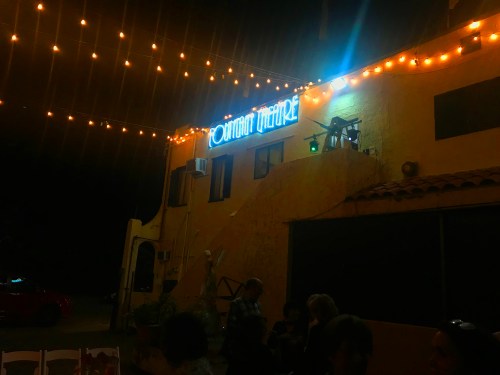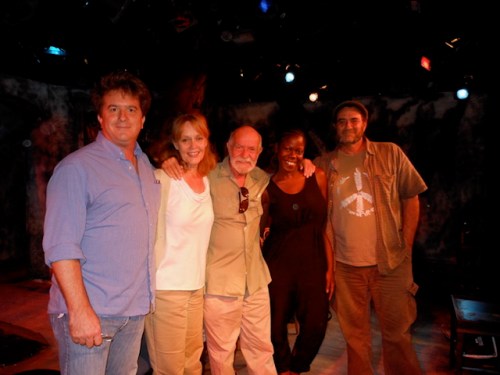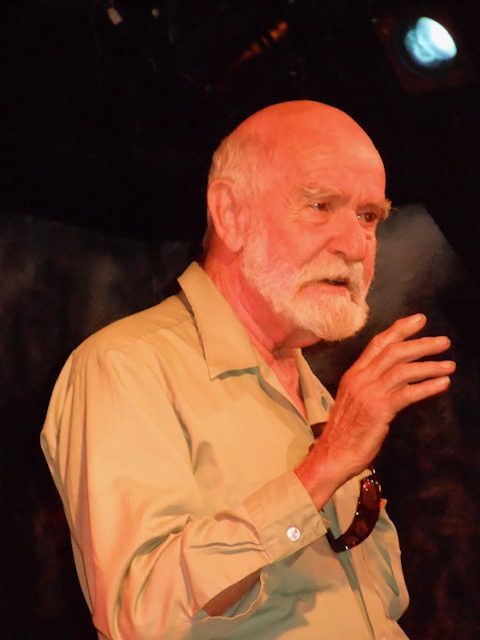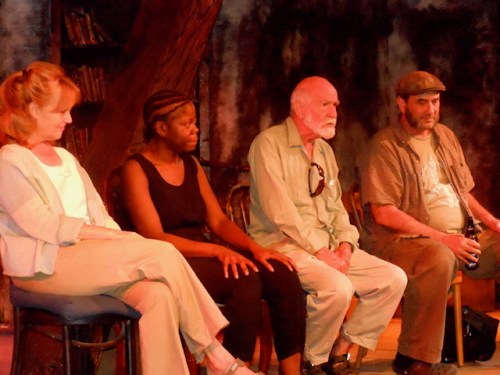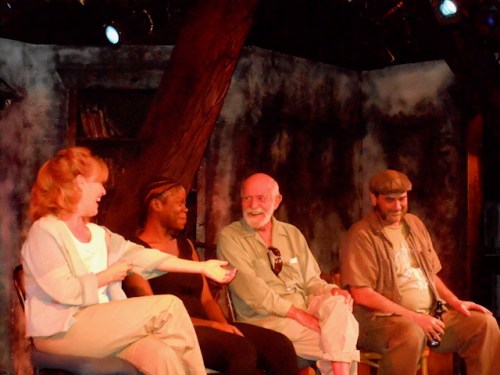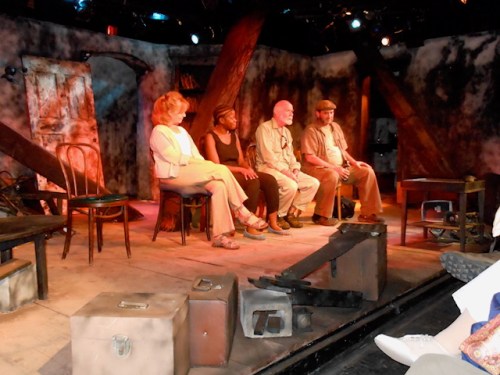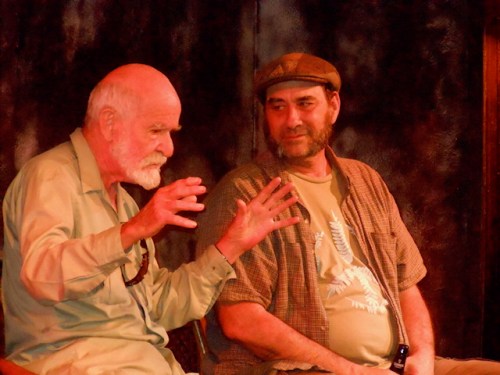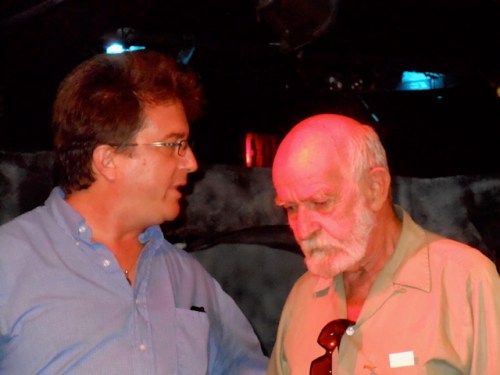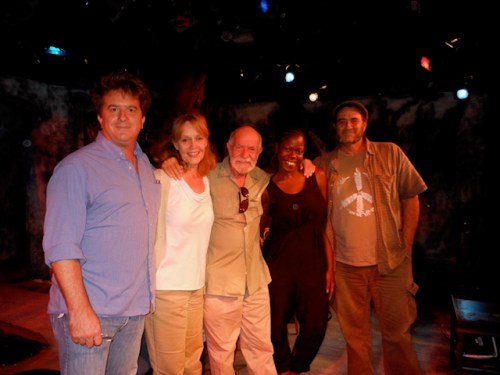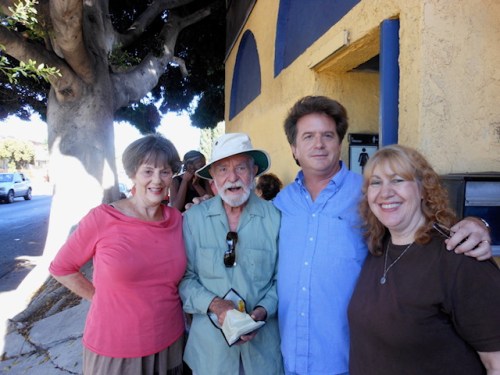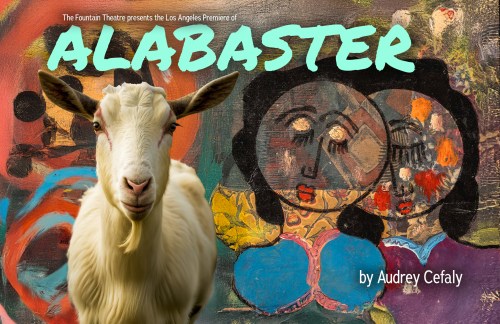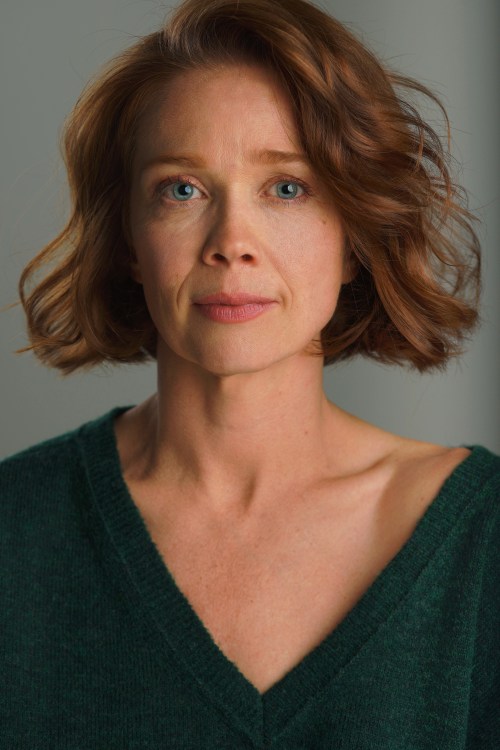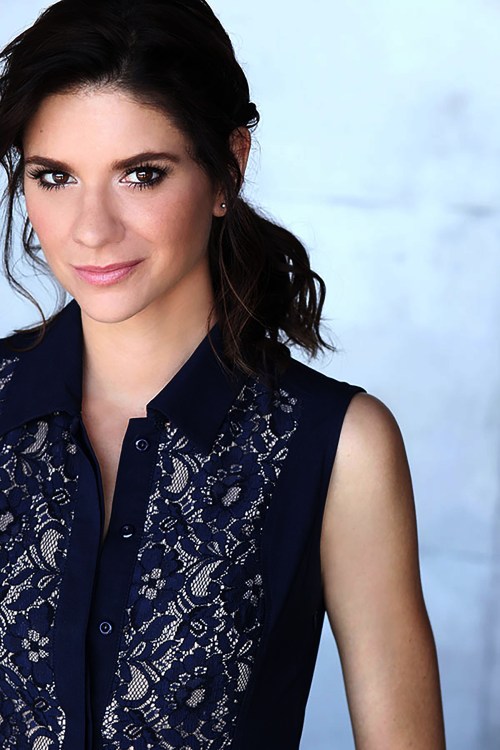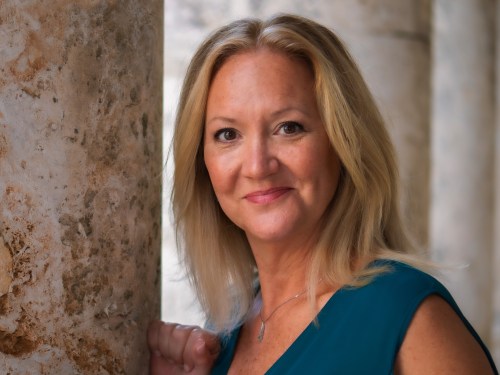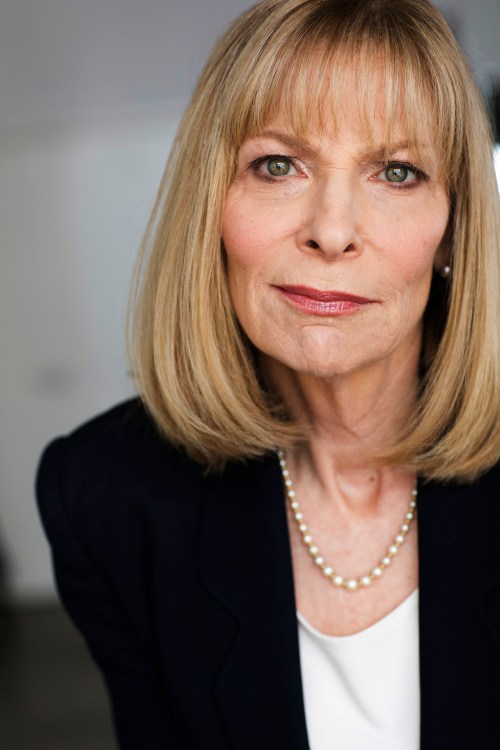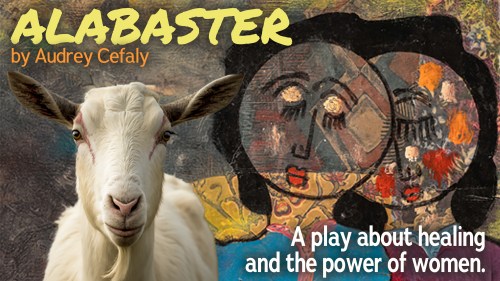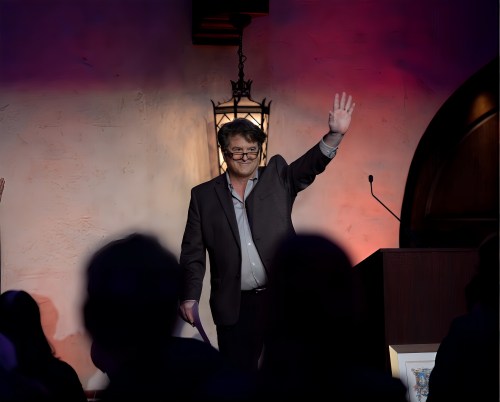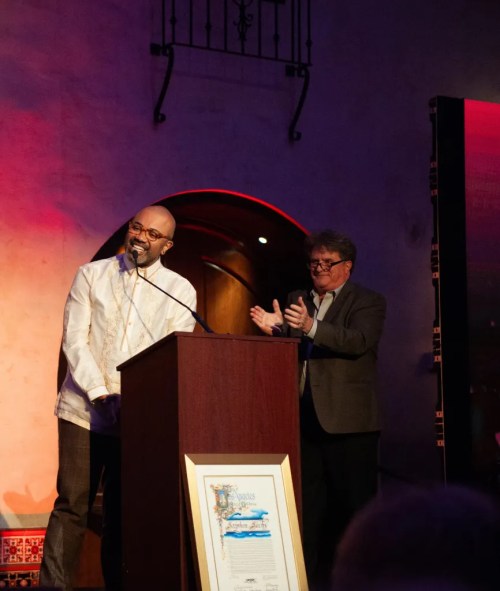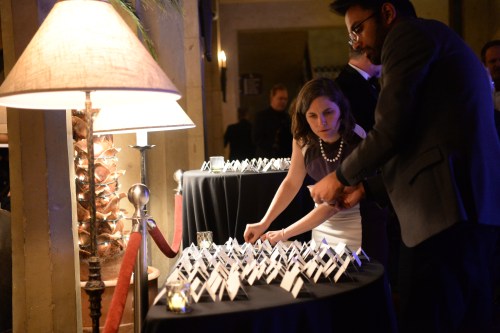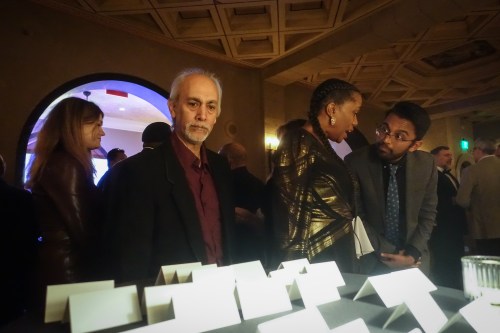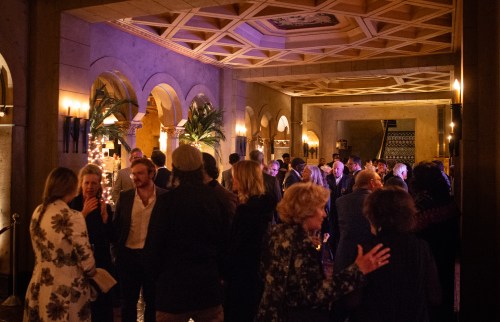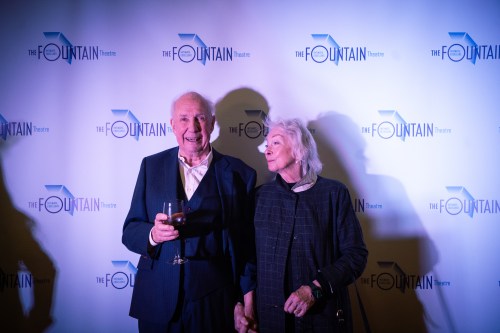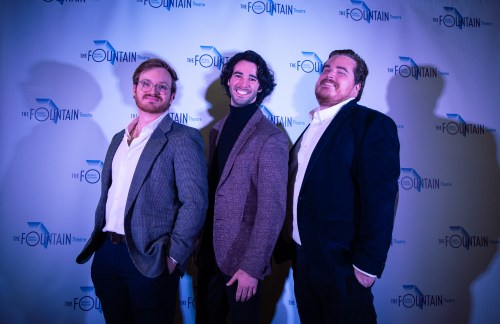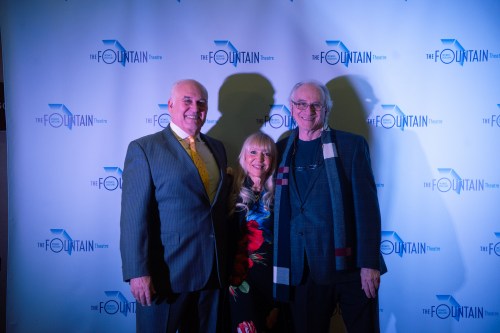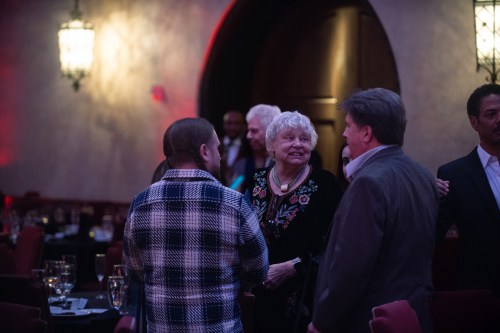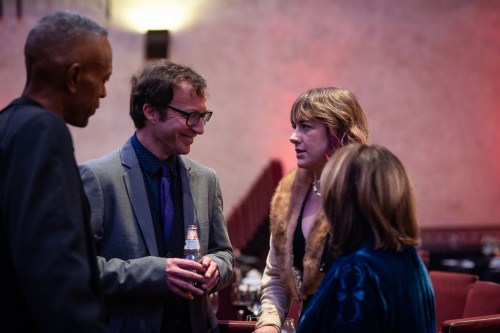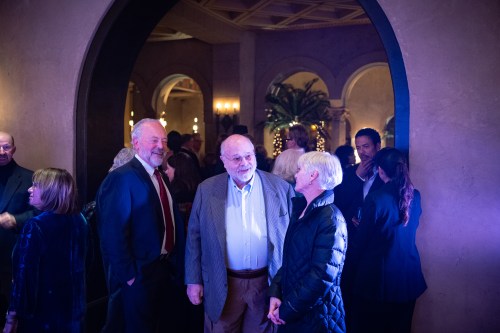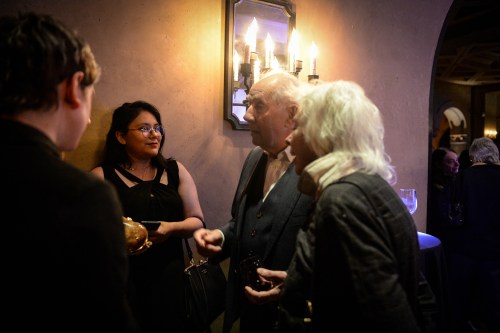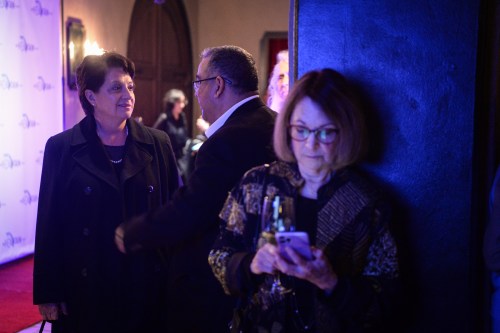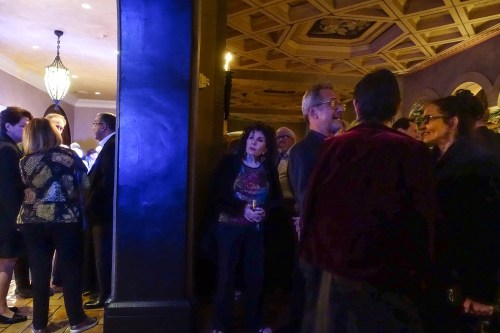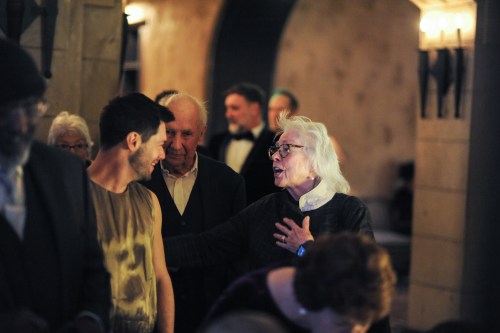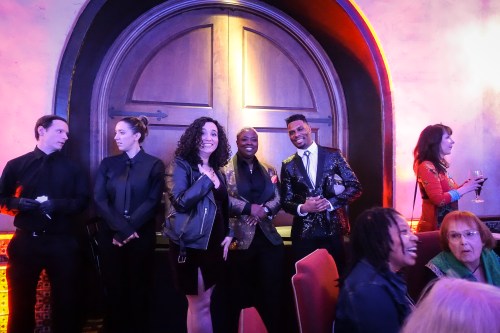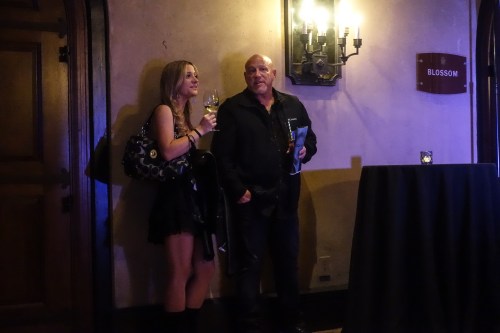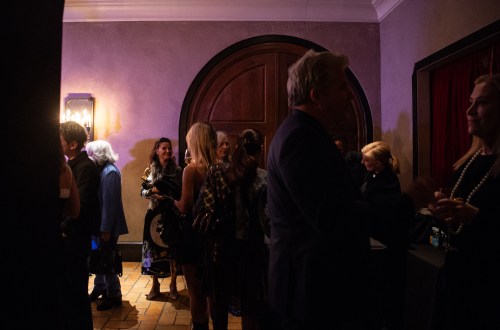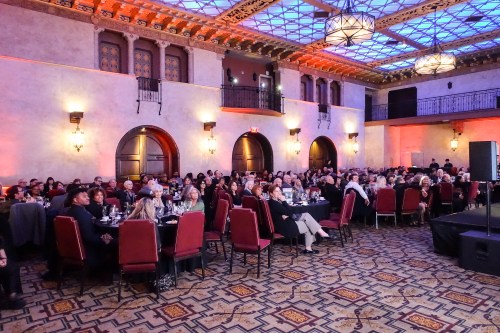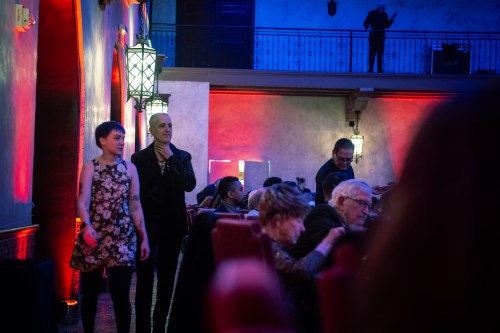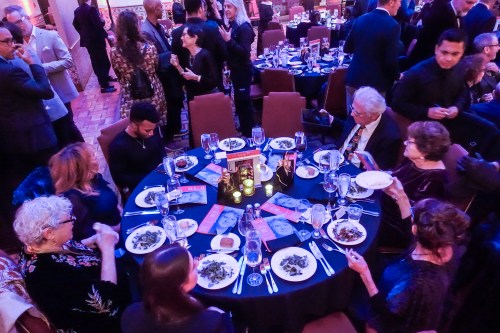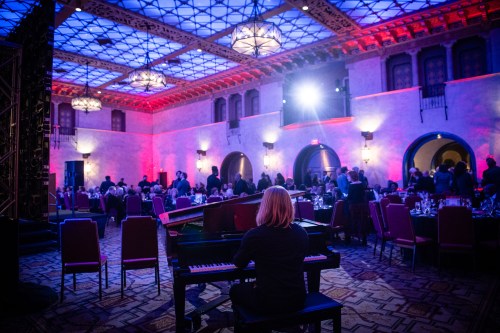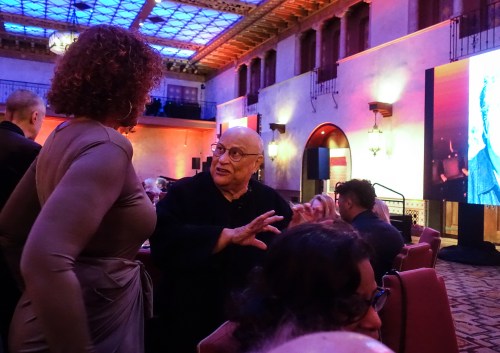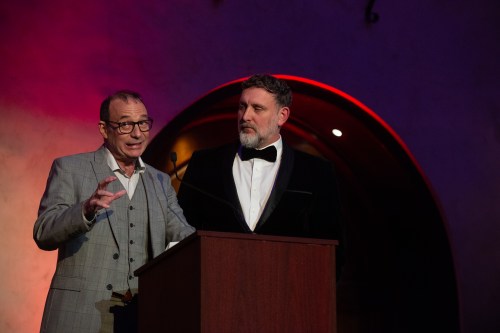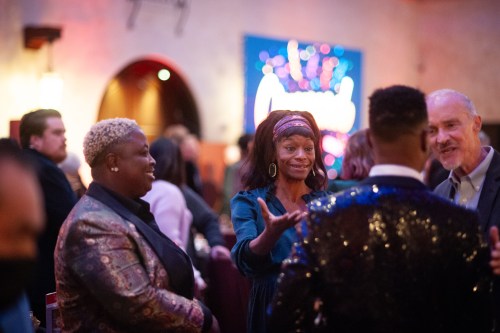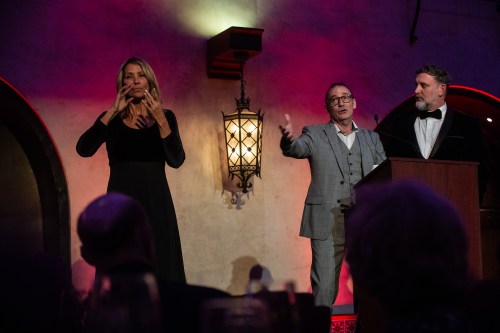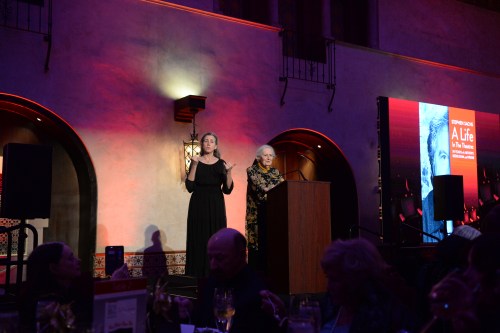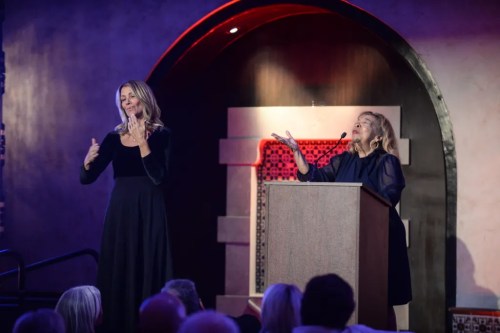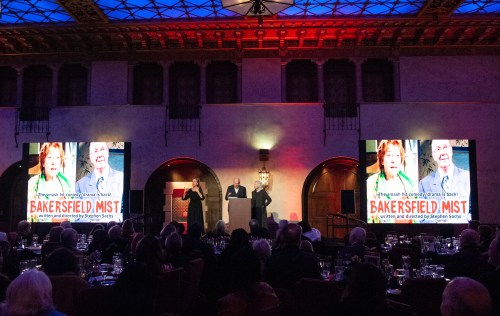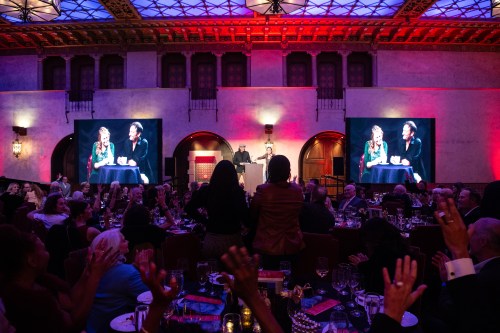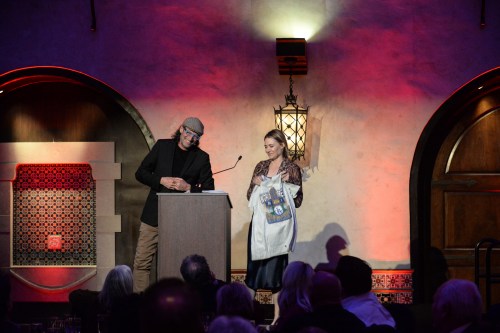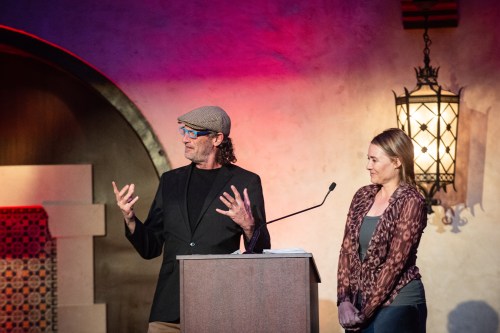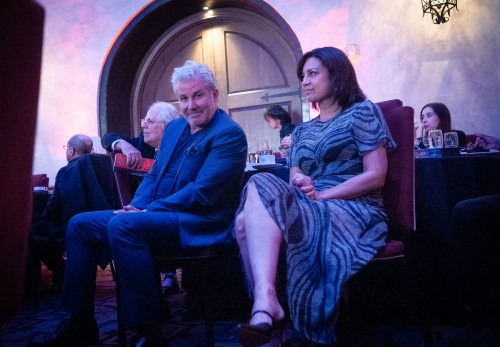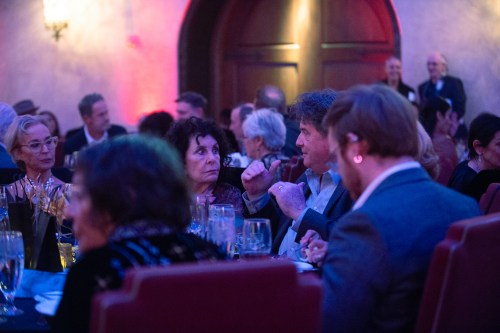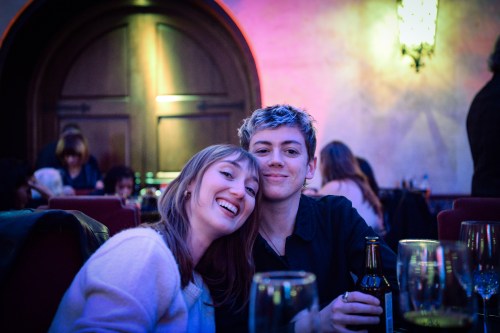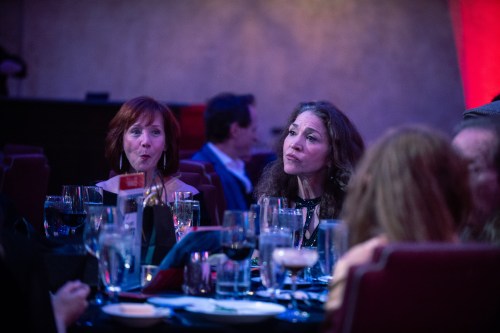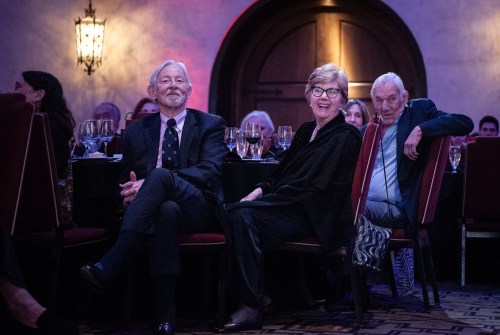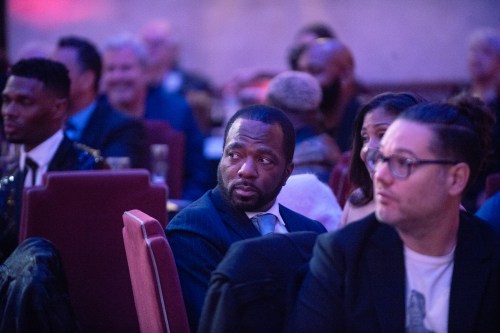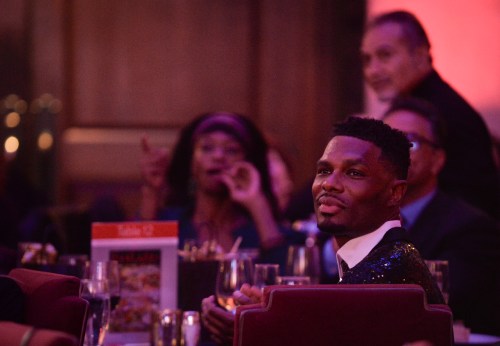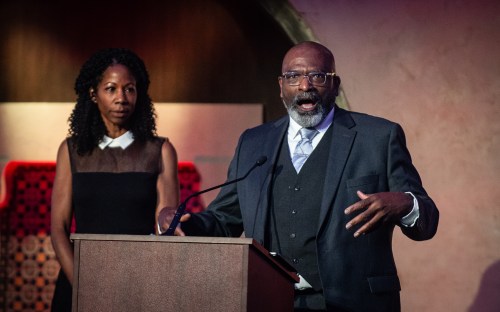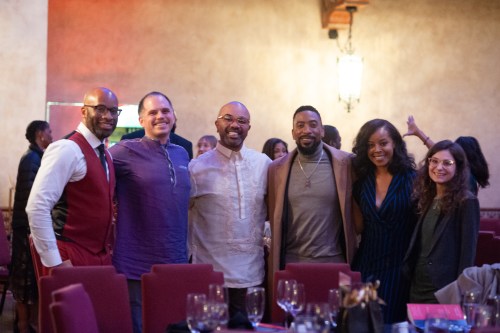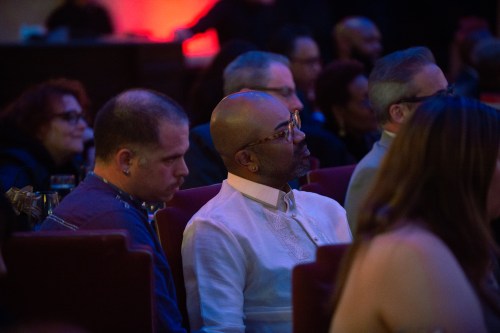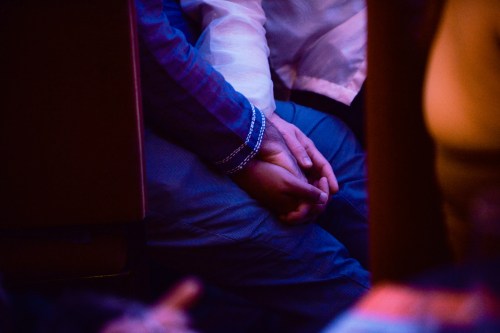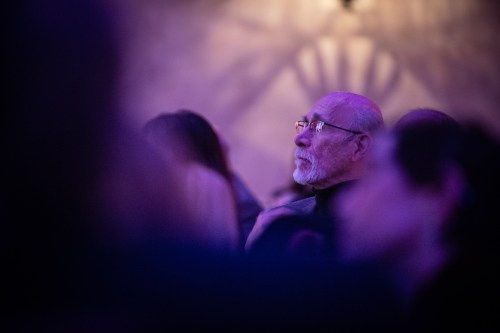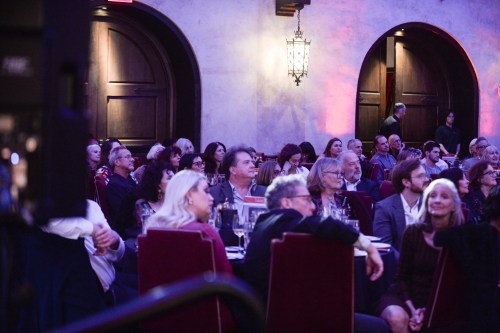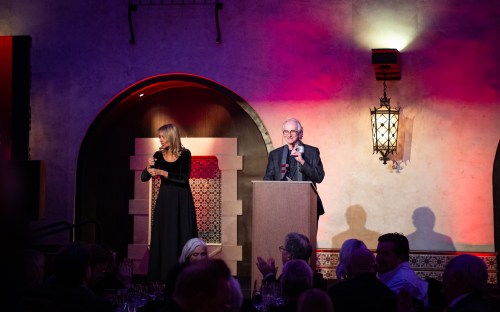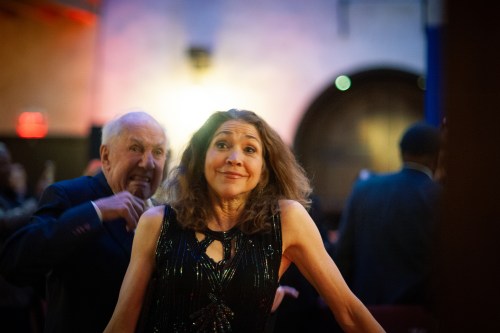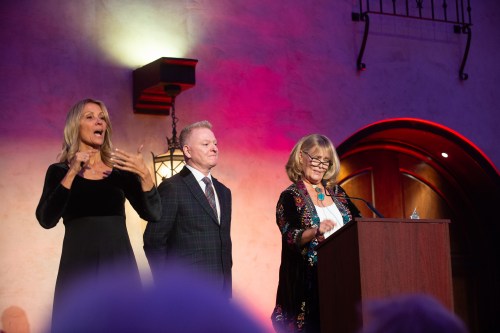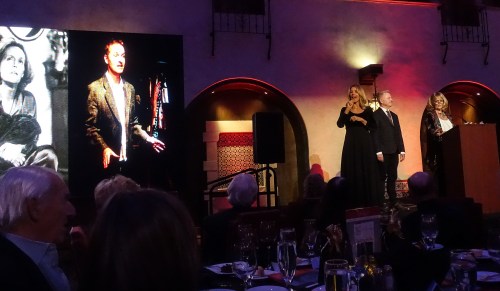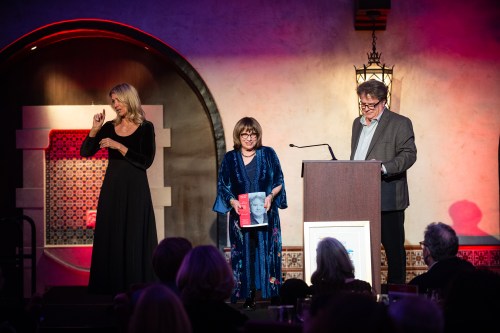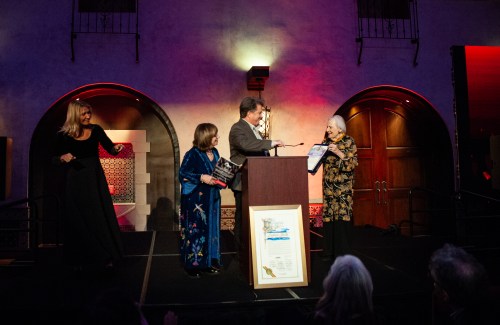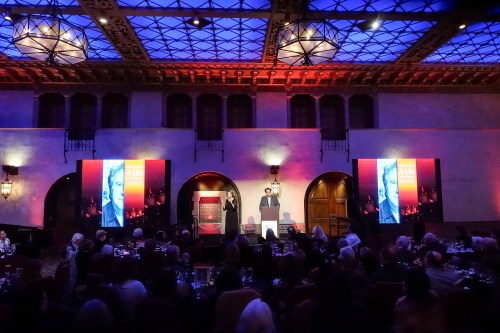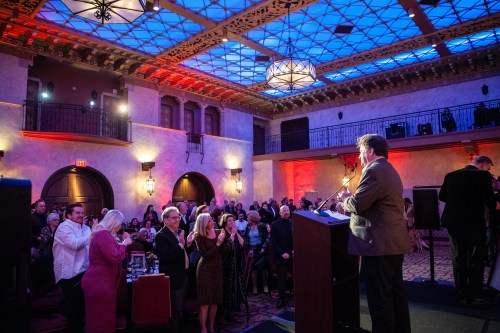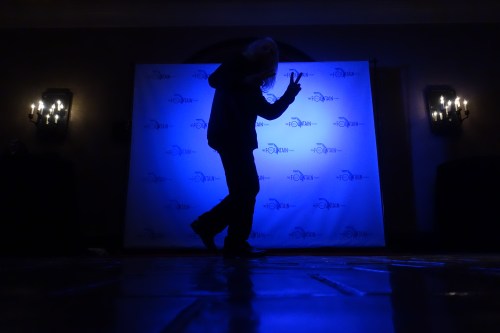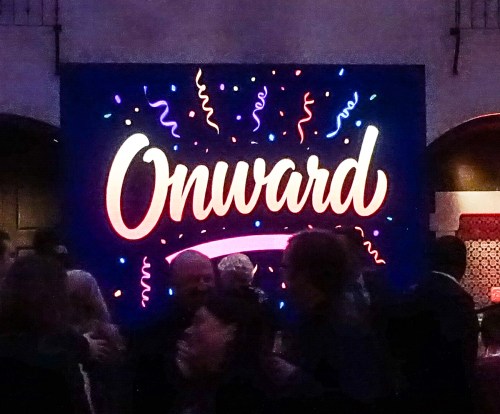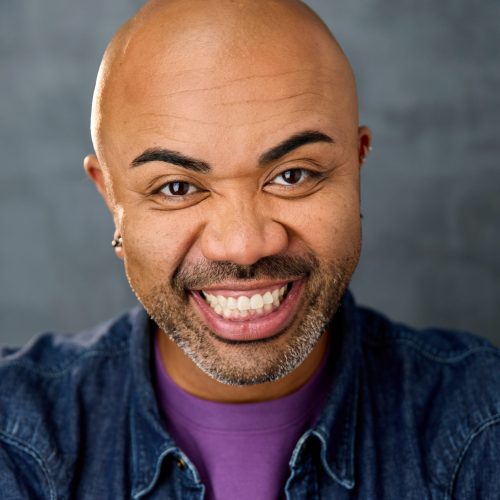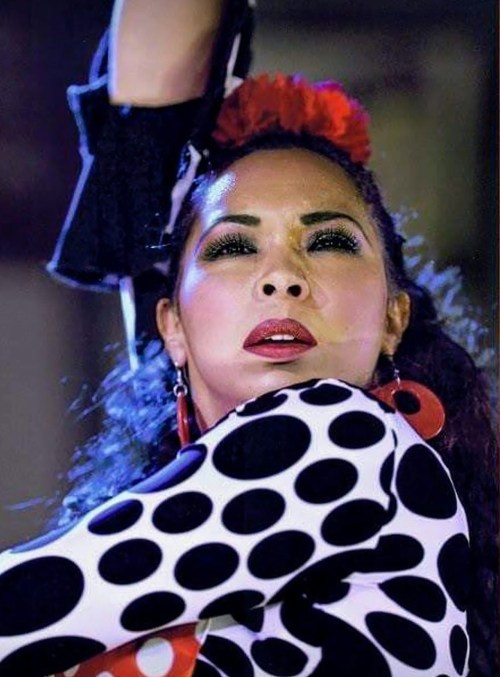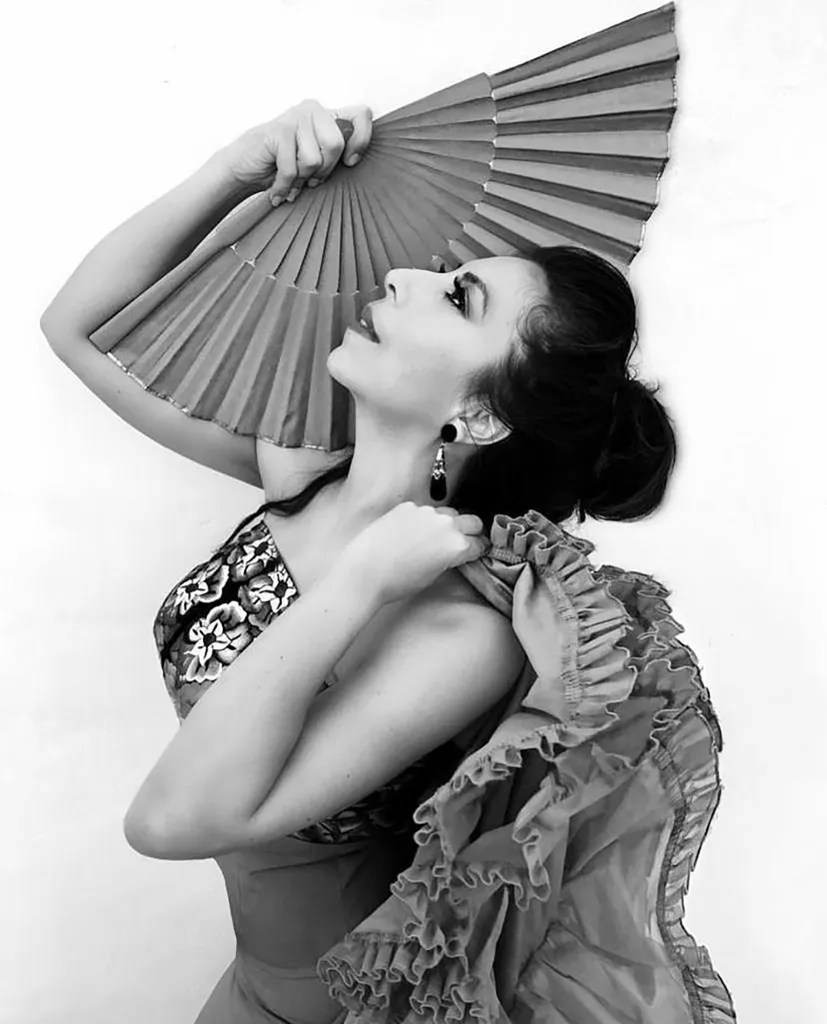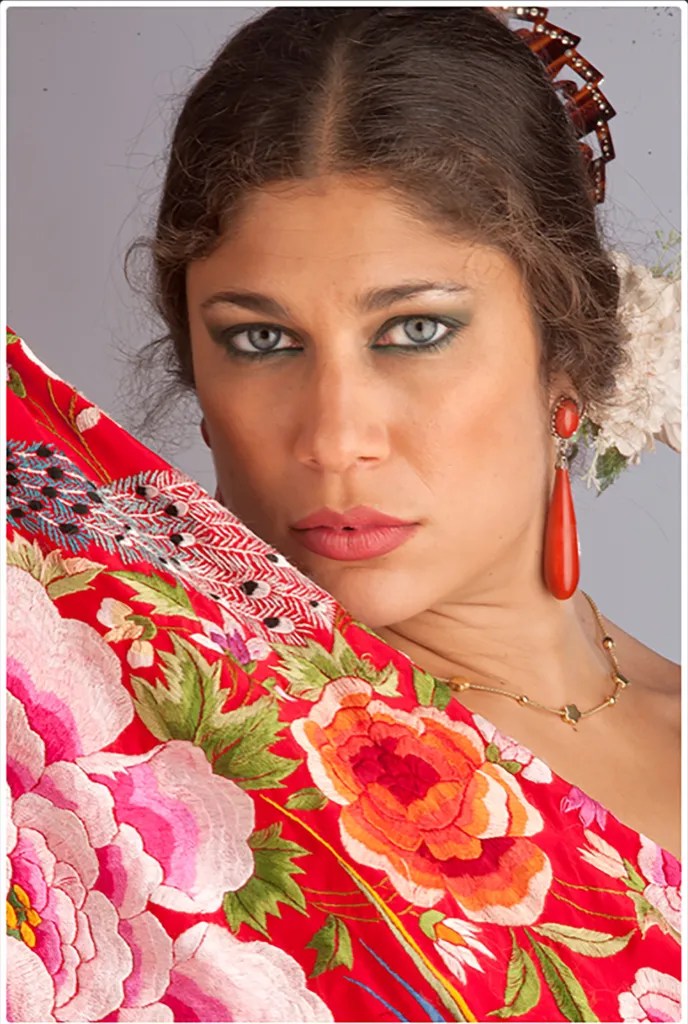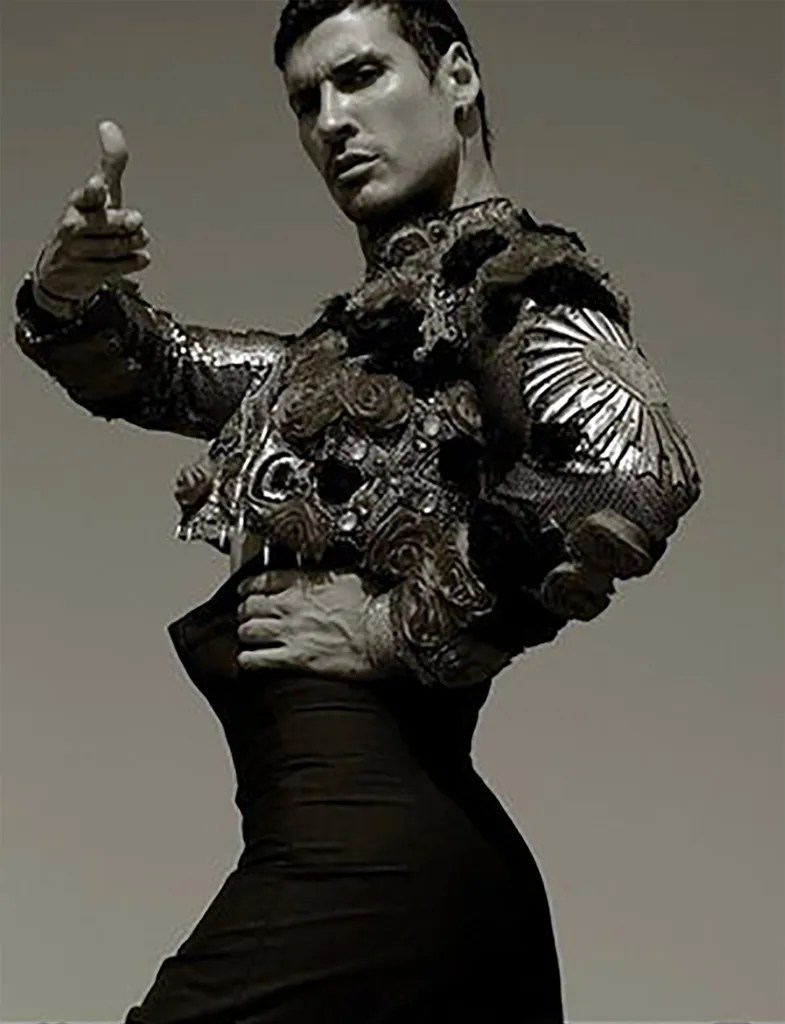By Terri Roberts
Today is April Fool’s Day, but this is no joke: thirty-five years ago, founding co-artistic directors Deborah Lawlor, a dancer from New York, and Stephen Sachs, a theatre director in Los Angeles, opened the doors at 5060 Fountain Avenue and introduced the Fountain Theatre to Los Angeles.
The Fountain has gone through a lot of challenges and changes since then — most notably, the death of Deborah Lawlor on May 2, 2023, the retirement of Stephen Sachs at the end of last year, and the 2025 installment of Raymond O. Caldwell as the Fountain’s new Artistic Director.
“We opened the doors of the Fountain Theatre on April 1, 1990: April Fool’s Day, an appropriate day to launch a nonprofit theatre company,” Sachs reflected in his speech at the Hollywood Roosevelt Hotel during his retirement celebration last fall. “Today, the Fountain’s doors remain open. Wide open to folks from all walks of life to come in and see themselves and their community, see their stories told on our stage. The ripple effect of the lives that we touch at the Fountain spreads from one human being to another. In 34 years, over one million people have passed through our doors.”
It was clear, then, from the beginning, that the Fountain Theatre would not be a common, everyday theatre, relying on predictable audience favorites and settling for the workable average. Risk-taking was part of the Fountain’s DNA from the outset, as was a devotion to the highest quality possible in every element of production and a commitment to producing plays, events, and dance pieces that reflected the wide range of faces, voices and experiences of Los Angelinos.
The Fountain’s inaugural production in the early summer of 1990 was Richard Sewell’s Winter Crane, a “drama with dance” based on a Japanese fable that was produced by Lawlor, choreographed by Bonnie Oda Homsey, and directed by Anne Drektrah. It was a clear birth announcement, as it were, of the fledgling organization’s intent to focus on those two artistic forms: drama and dance. Winter Crane was followed by The Golden Gate, adapted and directed by Sachs from a 1986 novel-in-verse by Vikram Seth, which he translated into a play-in-verse-in precise 14-line sonnet form. The show was so successful that it eventually transferred to the Zephyr Theatre in San Francisco.
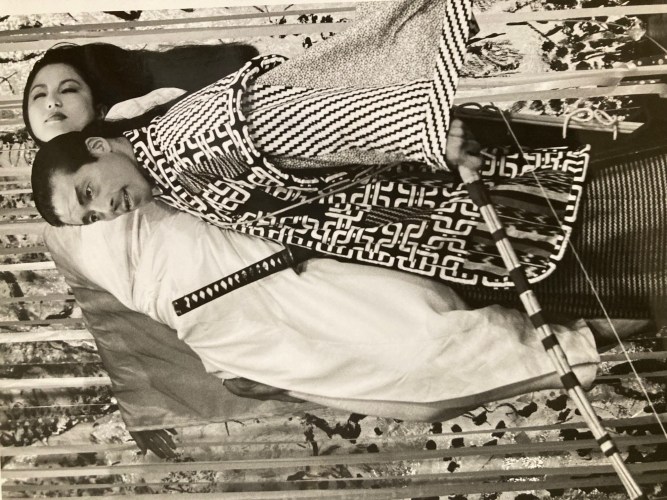
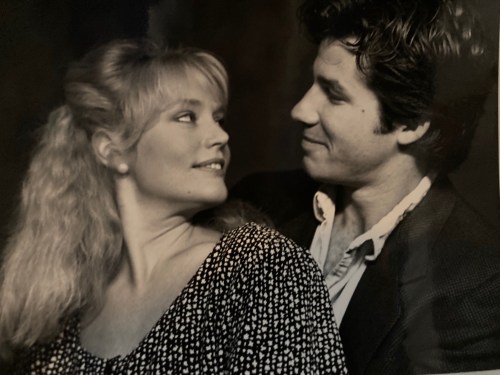
Over the years, familiar plays have been presented among the newer pieces. Works by such classic dramatists as Tennessee Williams, August Wilson, and Anton Chekov have graced our stage. After acclaimed South African playwright Athol Fugard came to see the Fountain’s L.A. premiere of his play The Road to Mecca, he was so impressed that he gave us his blessing to produce his future plays until his death last March.
There were dozens of new works presented on our small indoor stage-many of them penned by the prolific Sachs. Alongside newcomers and rising artists, many familiar faces from film and television have highlighted our casts: Taraji P. Henson, Simone Missick, Diarra Kilpatrick, Bud Cort, Salome Jens, Jean Smart, Jenny O’Hara, Tonya Pinkins, J. Alphonse Nicholson, Sam Waterston, Bradley Whitford, and others. The acclaimed Deaf West Theatre also started at the Fountain, bringing us such brilliant deaf talents as the late Phyllis Frelich and 2021 Oscar winner Troy Kotsur (Coda).
Dance remained a vital element of the Fountain’s programming as well. Lawlor created the popular, long-running program, Forever Flamenco, using her vast connections in the dance and Flamenco worlds to present monthly programs featuring local, national, and international talent. Forever Flamenco put the Fountain on the LA dance map, and we became widely recognized as the foremost presenter of Flamenco programming in Los Angeles. Lawlor became known as the Godmother of Flamenco, and Flamenco programming is still part of our annual seasons.
In the deadly summer of 2020, the scourge of COVID-19 shuttered all entertainment venues, and people were afraid to leave their homes. When the COVID-19 vaccine finally became available, people were eager to get back outside and find fun and enjoyment beyond their computers and television sets. Restaurants had been allowed to incorporate outdoor seating to keep their businesses alive, but most theatres didn’t have the space to offer such accommodations.
The Fountain, however, did. In the summer of 2021, we turned our parking lot into an outdoor theatre. We constructed an outdoor stage, put up scaffolding, lighting, and sound equipment, and filled the rest of the parking lot with chairs, tall tables, and a concessions stand. The Fountain Theatre was the first theatre in Los Angeles to reopen in the wake of the pandemic.
And the audiences came—that summer (An Octoroorn), and the next (ROE), and the next (Last Summer at Bluefish Cove.) We look forward to working with City officials to produce outdoors again.
The Fountain Theatre’s activities include a year-round season of fully produced new and established plays. We have mounted 35 world premieres and dozens of US, West Coast, Southern California, or Los Angeles premieres. Our educational outreach programs include Fountain Voices, a nine-week curriculum designed to build community and cultivate empathy utilizing the power of theatre and creative storytelling, and Walking the Beat, a creative writing, theatre, and multi-media summer workshop between police officers and teens in grades 9-12, designed to reinforce positive interactions. The Fountain also offers multi-ethnic dance shows and is recognized as the foremost presenter of Flamenco in Los Angeles. Our productions have also been seen in intimate and regional theatres nationwide, at the International Edinburgh Fringe Festival, on the West End of London, and in Off-Broadway houses.
Since 2020, the challenges facing arts communities have risen dramatically. The ever-increasing costs of materials, for example, have forced many theatres to dim down their dreams. Even formally reliable grant opportunities and funding sources have diminished.
As Sachs noted in his retirement speech last fall:
“The Fountain Theatre needs you. We need you to show up, dive in, and stay at it. Because that’s what we do. When freedom, decency, and human rights are threatened, the Fountain Theatre responds.
When the U.S. invaded Iraq, killing hundreds of thousands of civilians, we responded with What I Heard About Iraq.
When same-sex marriage triggered national debate, we responded with Daniel’s Husband
When Michael Brown was murdered in Ferguson, we responded with Citizen: An American Lyric.
When Trump imposed his extreme border policy, we responded with Building the Wall
When Trump called America’s free press “the enemy of the people,” we responded with All the President’s Men.
When the government started locking up immigrants and separating families, we responded with Detained.
When the Supreme Court overturned a woman’s right to choose, we responded with ROE. When Trump announced his candidacy for re-election, we responded with Fatherland.”
Much has been accomplished in the past 35 years at the Fountain, and there is much more yet to do. The world is now in a very different place than it was in 1990, and there are those in powerful places who claim that the arts have little value and that the artists who devote their lives to them are undeserving of fair and equal treatment.
We respectfully disagree. For 35 years, the Fountain Theatre has maintained a sense of integrity, fairness, and equality in all its works, and we plan to continue doing just that for the next 35 years. If you would like to help us continue creating/presenting high-quality theatre, dance, and educational outreach pieces, please consider making a donation of $35 (or more) below.
We are deeply grateful to you, our friends and patrons, for your support of the Fountain Theatre. We look forward to seeing you the theatre again soon!

